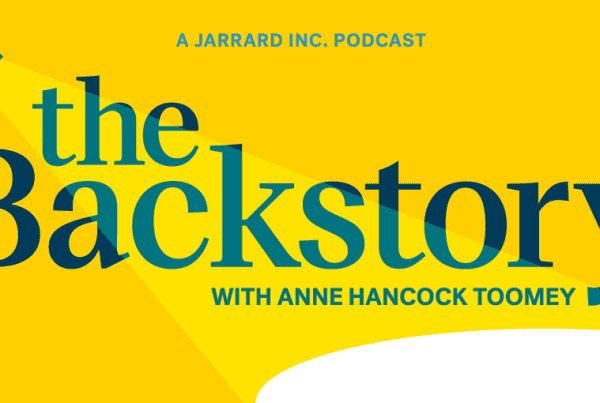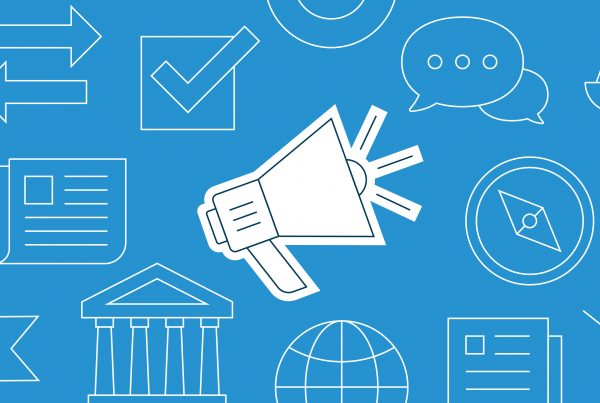David Smith is an expert in healthcare’s evolution, spending his professional time watching – and advising on – market trends, data and technology and how healthcare organizations can plan for the future. So, we checked in with Smith, who’s founder and CEO of healthcare advisory firm Third Horizon Strategies, for his takes on Amazon’s recent acquisition of primary care company One Medical. We also offer seven observations on what the deal means here.
Jarrard Inc.: What’s the feeling around the acquisition now that some time has passed?
David Smith: A few years ago, every time there was an event – or even whisper of an event – with Microsoft or Apple or Amazon, there would be an irrational exuberance. The feeling was, ‘These guys have figured out how to grow and scale and they understand consumers, so they’re going to figure out healthcare!’ And time after time, we haven’t seen a lot of disruption from these entities.
That led to something of a jaded reaction to these kinds of announcements around, say, 2017 or 2018. Haven is an example where there was a lot of press but also a bit of a collective yawn.
With One Medical, the pendulum has swung back a bit. A lot of smart industry people believe this has some disruptive potential. My sense is that the industry is cautiously excited about what this might portend for disrupting the traditional outpatient model.
JI: Does it matter what the healthcare industry thinks? Or is Amazon just going to do what Amazon is going to do and those of us in healthcare are getting hyped up?
DS: Where it should matter to Amazon or to anybody studying this is that industry professionals represent the collective wisdom and experience of decades of trying different reforms. Sometimes that can make their perspectives biased.
So, on the one hand, when it comes to disruption you don’t always want to take every word from those being disrupted. On the other hand, there is a lot of useful wisdom in that collective institutional experience. The fact that there’s some exuberance here suggests that there’s a sense Amazon is capable of doing something with the One Medical asset that other outpatient entities or institutional investors like Optum are less capable of doing.
JI: What else is driving the exuberance? Why now?
DS: Even though they do a lot of commercial business and B2B business, Amazon at its core is a tech-enabled consumer-oriented business. In that context, Amazon has successfully disrupted just about any other industry they’ve gone into. So, they have a track record. Still, the healthcare landscape in this country is littered with people with track records that tried healthcare and weren’t successful.
In my view there are two sources of exuberance:
The first is that, as a technology business which has created different pathways and nodes to amass important information on its users, Amazon’s potential ability to create a more frictionless, seamless, perhaps even integrated experience for patients is intriguing. Amazon has made it very easy to purchase things; they’ve made it very easy to access information. So, one area of enthusiasm is that if Amazon can bring that discipline to how a person thinks about their health and how they interact with the health system, that’s something to be excited about.
The second area is where the rubber meets the road. Amazon by itself is not going to be able to wield some kind of unique contracting power with health insurance companies. To be blunt, consumerism is really important, but we also need to acknowledge that, in this country, the healthcare dollar and how that dollar is allocated and organized is not a decision consumers make.
Amazon’s ability to be successful revolves around that first area. If they can activate the demand side and start to create a bolus in scale, moving them into a position where they can influence and shape how consumers are interacting with the system, that would make them a power center.
JI: Do you think they can do it? What are the caveats?
DS: Amazon has scale. They understand consumers. They understand technologies. That’s important but even so, there aren’t many examples of a heavily capitalized tech entity that has purchased a healthcare asset and been able to replicate the secret sauce that scaled their platform and extended it to healthcare. The economics in this industry are just so wildly different from any other.
If Amazon can activate significant demand, that kind of power center can wield the economics a lot differently. But the pathway to getting there would require far more scale than One Medical has today. It would also require the ability to gain the trust of a consumer who today is buying books or baby formula or office supplies. That consumer now has to look to Amazon and say, ‘I trust you to be my healthcare guide,’ and creating that trust is a monumental task.
JI: Pulling all of this together, what’s the opportunity for One Medical?
DS: Driving change and shifting the market are things that health systems, outpatient groups, health insurers and even governments are not great at. Employers have the potential to do it, but that requires employers coming together to think about how to wield their collective purchasing power. The challenge is that anybody who’s tried to harness and redirect the collective purchasing power of consumers in this country has typically done it for a narrow niche of the industry rather than comprehensively.
We’ll also need to watch the hundreds of thousands of permutations of healthcare finance. It changes by community, by payer, by rules, what’s written in, what’s carved out, how much is paid for any given service. And so not only do you have to aggregate different consumers and different communities with different levels of access, you have to do that in the context of highly unique healthcare ecosystems.
So that’s the biggest opportunity and challenge. If One Medical’s ambition is to do this at scale nationwide, they’ll start to look at these things more regionally and start to create patterns whereby they can aggregate and focus demand. That has the potential to begin shifting the economics.
Subscribe to Jarrard Insights & News
"*" indicates required fields



